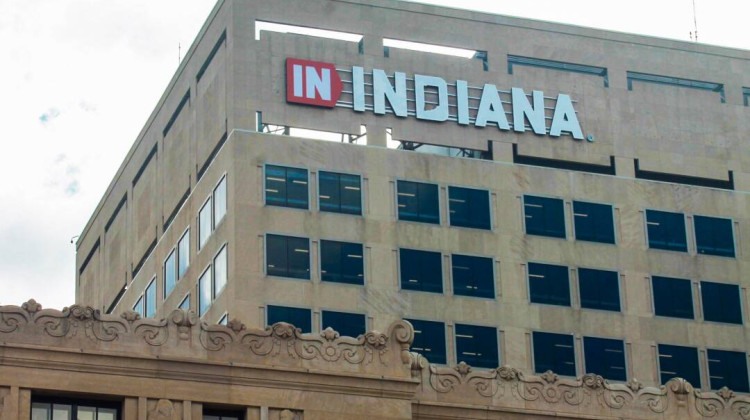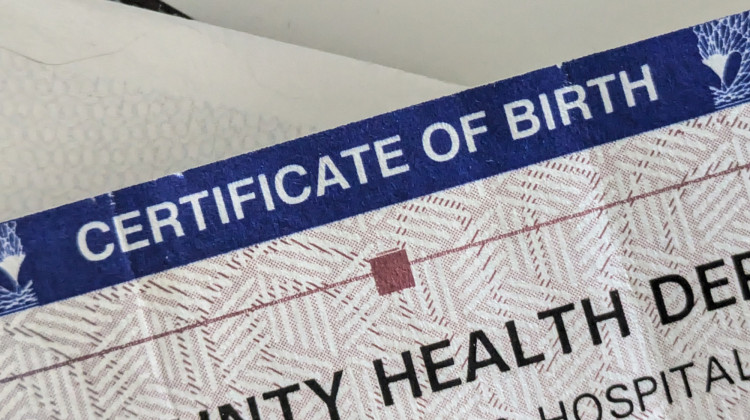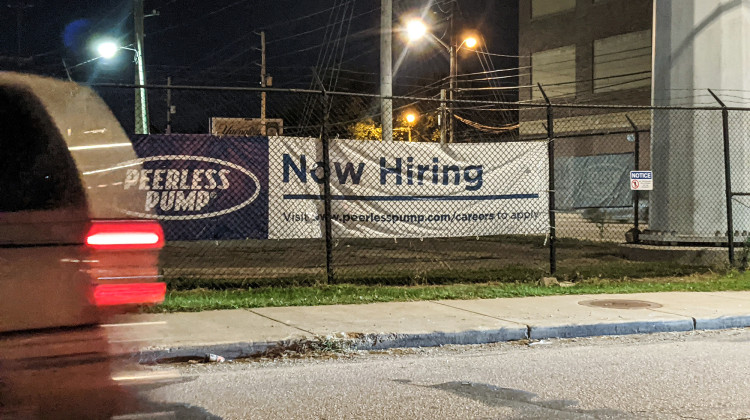
Indiana Gov. Eric Holcomb speaks with reporters during the Indiana Technology and Innovation Association conference in Fishers, Ind., on Friday, Oct. 8, 2021. Holcomb said he had not yet decided whether to appeal a court decision against his lawsuit challenging the expanded power state legislators gave themselves to intervene during public health emergencies.
(AP Photo/Tom Davies)INDIANAPOLIS (AP) — Indiana’s attorney general continues to criticize Republican Gov. Eric Holcomb for trying to block a new law that gives state legislators more power to intervene during public health emergencies, even while agreeing that the state Supreme Court should take up the dispute.
The attorney general’s office said in a court filing late Monday that it supports the Supreme Court taking over the governor's case after a Marion County judge ruled last month that the state constitution gives the General Assembly the authority to determine when and for how long it will meet.
The Republican-dominated Legislature enacted the law, despite Holcomb’s veto, following conservative criticism of a statewide mask mandate and other COVID-19 restrictions that Holcomb imposed by executive orders in the early days of the pandemic last year.
The measure establishes a process under which legislative leaders can call the General Assembly into an “emergency session.” Holcomb’s lawsuit argues that the law violates a state constitutional provision that says only the governor can call the Legislature into a special session.
The attorney general’s office, representing the Legislature, argued in its new court filing that urgent court action was not needed because the “emergency session” procedure hasn’t been used and the formal start of the next regular session on Nov. 16 will allow the Legislature to meet until mid-March 2022.
“The many opportunities the General Assembly has had, currently has, and will continue to have to address the Governor’s handling of the ongoing COVID-19 public health emergency during its current and upcoming regular sessions make it even less likely that the General Assembly will invoke (the new law) any time soon,” the attorney general’s office said.
The Supreme Court did not take any immediate action on whether to consider the case.
Holcomb’s lawsuit has divided Indiana’s Republican hierarchy, with GOP state Attorney General Todd Rokita siding with legislators. Rokita’s office unsuccessfully argued that courts shouldn’t consider Holcomb’s lawsuit, saying the attorney general alone has the legal authority to represent the state in court and can decide whether the new law is allowed under the state constitution.
The office’s new court filing referred to the law firm hired by Holcomb as “unauthorized private counsel” even though the state Supreme Court rejected Rokita’s arguments that the governor couldn’t pursue the lawsuit.
The governor’s office and his private lawyers didn’t immediately reply to a request for comment Tuesday.
Holcomb said in a statement when his appeal was filed Oct. 22 that he wanted to ensure the state constitution was being followed.
“The proper functioning of state government is critical, especially during times of emergency,” Holcomb said. “Our State, and its people, deserve clarity and finality on this important issue.”
 DONATE
DONATE






 Support WFYI. We can't do it without you.
Support WFYI. We can't do it without you.